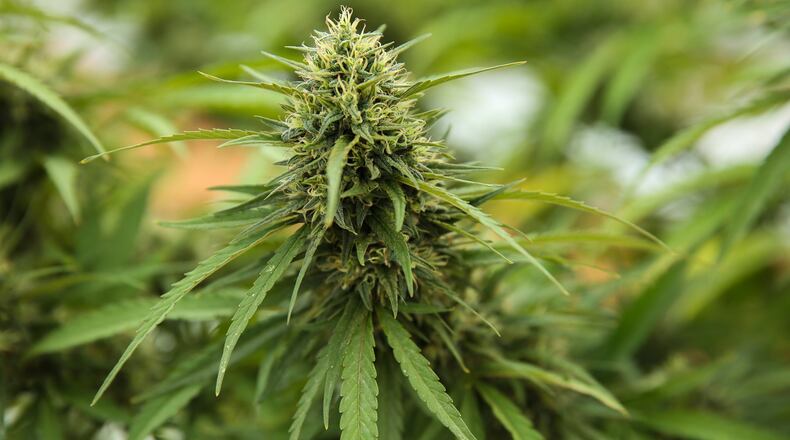The General Assembly recently passed a bill to help police enforce marijuana laws without hindering the state's young hemp farming industry.
But prosecutors and police say it won’t change how they handle suspected marijuana cases.
Possession of small amounts of marijuana will remain decriminalized in several jurisdictions, and a low priority in many others. Misdemeanor cases are more likely to result in diversion classes or dismissals than prosecutions.
Police can’t tell the difference between illegal marijuana and legal hemp plants, and law enforcement officials said testing small amounts of green leafy substances is more trouble than it’s worth.
“Marijuana remains illegal in Georgia. That hasn’t changed,” said Pete Skandalakis, executive director for the Prosecuting Attorneys’ Council of Georgia. “The problem law enforcement will face now is when there’s less than an ounce, there’s no field test that will let you distinguish between hemp and marijuana.”
The legislation, which awaits Gov. Brian Kemp's signature or veto, highlights the difficulty of allowing hemp farming while maintaining prohibitions on recreational marijuana consumption.
Hemp and marijuana look similar, and both come from the cannabis plant. But hemp, which is used to make CBD oil, contains less than 0.3% THC, the compound that gives marijuana users a high. CBD oil is sold in stores across Georgia as a treatment for pain, anxiety and insomnia.
Under the bill, transportation of hemp plants without appropriate paperwork could result in misdemeanor charges, with penalties of up to a year in jail and a $1,000 fine.
But in practice, prosecutors aren’t going to be able to make a strong case unless they can prove that a substance is illegal marijuana, Skandalakis said. And the GBI crime lab will only test for the THC content of felony amounts, over 1 ounce. Field tests can show if a substance contains THC, but those tests don’t differentiate between hemp and marijuana, which usually contains at least 15% THC.
While prosecutors and law enforcement agencies wanted stronger restrictions on marijuana, the bill was essential to help start hemp farming in Georgia, said state Rep. John Corbett, a Republican from Lake Park.
The legislation, House Bill 847, requires hemp farmers and processors to obtain licenses, allows out-of-state hemp sales and raises the annual processing fee to $50,000 a year, up from a $10,000 fee set last year. The fee to grow hemp would remain at $50 per acre.
“We needed to have this so the farmers could get growing,” Corbett said. “Hopefully it’s going to be a viable industry for our farmers. We’re going to keep working on it.”
State legislators should reconsider Georgia’s marijuana laws next year, said Terry Norris, executive director for the Georgia Sheriffs’ Association.
Norris said this year’s bill was “pretty soft.”
“We have to find language that will distinguish between the two substances, period,” Norris said. “It remains an issue for all law enforcement and the public. A lot of jurisdictions, particularly in the metro areas, are either not making cases or writing citations.”
Police have better things to do than test green leafy substances or try to bring charges for transporting hemp without documentation, said Brian Whiteside, solicitor-general in Gwinnett County.
"Nobody's going to do that. That's burdensome. It's another law where the only word for it is 'stupid,'" said Whiteside, whose office last year stopped prosecuting misdemeanor marijuana cases. "Imagine stopping somebody and saying, 'By the way, I'm going to have to arrest you for transportation of hemp, but we can't test it and the GBI won't test it.'"
The legislation also won't affect how DeKalb County prosecutes low-level cases, according to the county solicitor's office. Since last year, DeKalb has dismissed any single-count marijuana cases. Charges involving marijuana offenses are reviewed on a case-by-case basis.
The GBI has also scaled back marijuana efforts.
The agency last year permanently discontinued its Marijuana Certified Examiners Course, which taught police officers to perform tests to determine if leafy materials are marijuana, because the testing didn’t distinguish between hemp and marijuana, said GBI spokeswoman Nelly Miles.
The GBI will continue to conduct purity tests only in suspected felony marijuana cases, Miles said.
In the meantime, hemp farming is underway in Georgia. The state Department of Agriculture had approved licenses for nine hemp processors and 66 hemp growers as of last month.
About the Author
Keep Reading
The Latest
Featured






